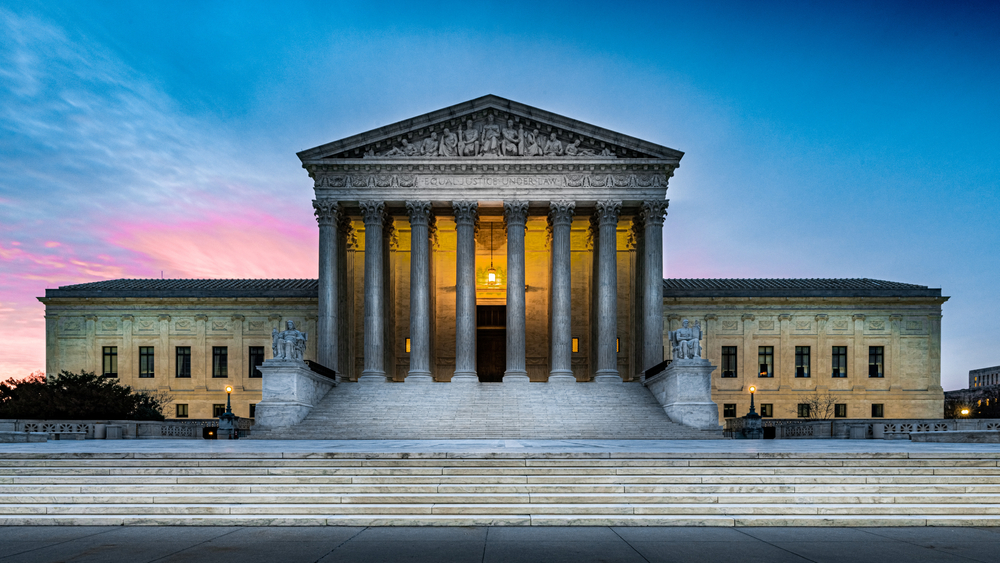We can expect continued criticism of the federal Affordable Health Act (ACA) from many politicians, such as Senator Ted Cruz of Texas, whose 2016 comments deemed it socialized medicine and therefore “a disaster.”
However, on June 17, millions of Americans breathed a sigh of relief upon hearing the U.S. Supreme Court upheld the ACA, also known as Obamacare, by ruling against Texas Vs. California. The lawsuit was based on the Obama-era mandate requiring people to either carry health insurance or pay a fine.
This is the third time the high court has upheld Obamacare, now in use by 31 million Americans, and perhaps the final time it will be challenged. Although some high-ranking officials were swift to disagree with the decision, there was virtually no acknowledgment of continuing a legal battle against the ACA.
The 7-2 decision may have come as a surprise to Americans who expected the newest judges on the court - Neil Gorsuch, Brett Kavanaugh and Amy Coney Barrett, all conservatives appointed by Trump - to vote against it. Instead, Kavanaugh and Coney Barrett joined the rest of the court in voting to uphold the law, while only Gorsuch and Samuel Alito voted against it.
A Short History of Texas vs. California
This latest challenge to the ACA began in Texas and concerns the requirement that all individuals must carry health insurance or be subject to a fine at tax time. The mandate was part of the original ACA legislation.
In 2017, the GOP-led Congress successfully passed the Tax Cuts and Jobs Act, which eliminated the fine. This led to a group of attorney generals, all in Republican states and endorsed by then-President Trump, to file a suit claiming that with no fine, this was no longer a tax, making the mandate unconstitutional. Therefore, they alleged, the entire law should be taken off the books.
As the suit wound its way through Texas courts, a federal district court agreed, siding with the plaintiffs and declaring the ACA invalid. A short time later, the Fifth Circuit Court partially affirmed the decision.
Attorney generals in Democratic States, including California, responded by fighting back with the help of the U.S. House of Representatives, appealing to the Supreme Court to step in.
Hints Back in November
The Supreme Court first began considering the case in November 2020, and there were hints even then that the effort to invalidate the ACA would fail. During the initial arguments, two conservative justices made it clear they believed Congress’s act of zeroing out the tax penalty did not mean Obamacare could be erased.
Chief Justice Roberts, who wrote the 2012 Supreme Court decision upholding the ACA’s constitutionality, told Texas Solicitor General Kyle D. Hawkins, “I think it’s hard for you to argue that Congress intended the entire act to fall … when the same Congress that lowered the penalty to zero did not even try to repeal the rest of the act.”
Justice Kavanaugh appeared to agree with Roberts when he said to Hawkins, “It does seem fairly clear that the proper remedy would be to sever the mandate provision and leave the rest of the act in place.
Fast forward to the justices’ June 2021 final discussion on Texas vs. California. In the majority opinion, written by Justice Breyer, they explained the mandate does not require a person to pay a fine. Therefore Texas had no standing to challenge it in court.
"To have standing, a plaintiff must 'allege personal injury fairly traceable to the defendant's allegedly unlawful conduct and likely to be redressed by the requested relief,” Justice Breyer wrote. “No plaintiff has shown such an injury.’’
Long Legal History Against Obamacare
Over the years, Republicans have continued to speak out against the Affordable Care Act, specifically concerns over the expense of the coverage expansion, the prescription rules, limited plan choices and pieces of the law on hot-button issues, including reproductive health. Many states with Republican governors have refused to endorse the ACA by not expanding their Medicaid programs, including significant states such as Texas and Florida.
Yet, the ACA has seen an increase in public usage, particularly in the last 18 months, as the COVID-19 pandemic spread across the country. Employment rates plummeted, and healthcare concerns shot up.
According to a May 2021 poll by the Kaiser Family Foundation, 53% of adults held a favorable view of the law, while 35% had an unfavorable opinion. The same poll revealed that only 15 percent of Republicans favored the ACA; 77 percent did not.
Nonetheless, the Supreme Court’s latest decision has not caused a Republican backlash of intentions to keep battling the law. Some GOP politicians have continued to express disagreement on the cost of Obamacare, like Virginia Fox (R-North Carolina), the ranking member of the House Education and Labor Committee. Citing a need for “workable solutions that will bring down the cost of health care,’’ Fox said in a statement. “It’s a shame the highest court in the country ruled today that Americans aren’t harmed by this broken law.’’
Supreme Court’s ACA Timeline
- June 28, 2012: The Supreme Court discussed two issues, including a first-time debate on the mandate that the uninsured must pay a fine. They also gave individual states the power to choose whether or not to expand the Medicaid program.
- June 30, 2014: The Supreme Court ruled in favor of religious groups, allowing them to exempt themselves from the mandate requiring providers to cover contraception.
- June 25, 2015: The Supreme Court ruled to uphold the legality of nationwide subsidies helping those in financial need to obtain health insurance coverage.
- November 10, 2020: The Supreme Court began hearing arguments from Texas and other Republican-leaning states that the ACA should be invalidated due to the change in the tax mandate for the uninsured.
- June 17, 2021: The Supreme Court preserved the ACA by rejecting the challenge brought on by Texas vs. California.














